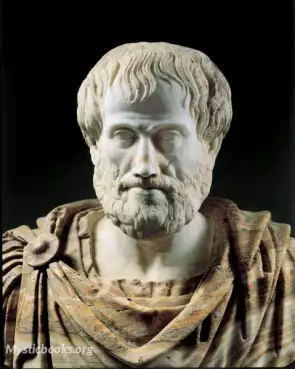
Magna Moralia
by Aristotle
'Magna Moralia' Summary
The "Magna Moralia" begins by discussing the nature of virtue and happiness. It argues that virtue is the highest good and that happiness is the result of living a virtuous life. The text then explores the different virtues, including courage, temperance, justice, and wisdom. It also examines the role of friendship in human happiness, arguing that friends are essential for a fulfilling life. The "Magna Moralia" also discusses the concept of God. It argues that God is the ultimate cause of all things and that God is perfect and unchanging. However, the text does not provide a detailed description of God's nature or attributes. Instead, it focuses on the ethical implications of believing in God. The "Magna Moralia" argues that belief in God can motivate people to live virtuous lives and to pursue happiness. Overall, the "Magna Moralia" is a valuable resource for anyone interested in ancient Greek philosophy and ethics. It provides a comprehensive overview of Aristotle's ethical thought and offers insights into the nature of virtue, happiness, and God.Book Details
Language
EnglishOriginal Language
Published In
Authors

Aristotle
Greece
Aristotle (384–322 BC) was a Greek philosopher and polymath during the Classical period in Ancient Greece. Taught by Plato, he was the founder of the Lyceum, the Peripatetic school of philosophy...
Books by AristotleDownload eBooks
Listen/Download Audiobook
- Select Speed
Related books

Vivo de Zamenhof by Edmond Privat
This biography, penned by Edmond Privat, presents a comprehensive account of the life and work of Ludwik Lejzer Zamenhof, the creator of the Esperanto...

Selection from the Sonnets of William Wordsworth by William Wordsworth
This selection of William Wordsworth's sonnets showcases his deep appreciation for the natural world, his reflections on human relationships, and his...

God's Way of Peace: A Book for the Anxious by Horatius Bonar
In "God's Way of Peace," Horatius Bonar explores the universal human struggle with anxiety and presents a path toward finding lasting peace. Drawing f...

Bible (Reina Valera) 01: Génesis (version 2) by Reina-Valera
The Book of Genesis is the first book of the Hebrew Bible and the Christian Old Testament. It narrates the creation of the world, the lives of the pat...

According to Promise, or The Lord’s Method of Dealing with His Chosen People by Charles H. Spurgeon
This devotional work by Charles Spurgeon explores the concept of God's promises and their implications for believers. He encourages a deep self-examin...

Tramp Abroad by Mark Twain
A Tramp Abroad is a hilarious and insightful travelogue of Mark Twain's journey through Europe with his friend Harris. Twain's keen eye for detail and...

Pensées by Blaise Pascal
Pascal's Pensées is widely considered to be a masterpiece, and a landmark in French prose. When commenting on one particular section (Thought #72), Sa...

Against Indifference by Charles Webbe
LibriVox volunteers bring you 17 different recordings of Against Indifference by Charles Webbe. This was the weekly poetry project for the week of Jan...

Pursuit of God by Aiden Wilson Tozer
In 'Pursuit of God,' A.W. Tozer challenges Christians to move beyond a superficial faith and embark on a profound journey of intimacy with God. He ar...

Explanation of Catholic Morals by Rev. John H. Stapleton
This book provides a concise, reasoned, and popular exposition of Catholic moral teachings. It covers a wide range of topics, including the Ten Comman...
Reviews for Magna Moralia
No reviews posted or approved, yet...